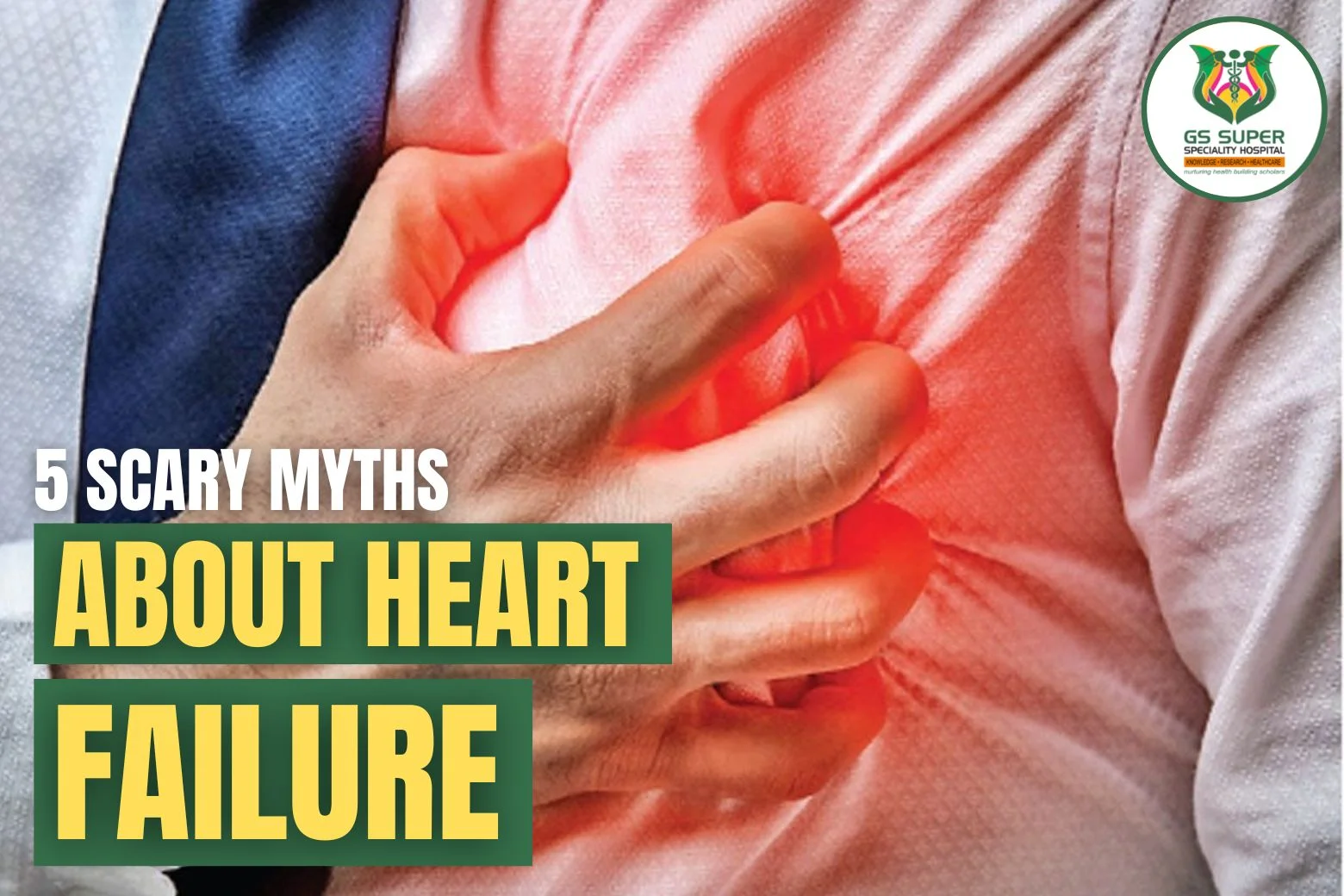Heart failure is a severe condition, and its cases have spiked recently. With many losses, this condition can cause shortness of breath, heart palpitations, and worsening symptoms with activity. It's the number one cause of cardiac arrest and death. Heart failure affects people of all ages, sexes, races, and ethnicities-but it's more common in men than women. But why is this so? This article will help us understand 5 scary myths related to heart failure that are less known.

It's a severe condition affecting millions worldwide, with an estimated 8 to 10 million cases currently in India alone.
Heart failure results when the heart muscle becomes weak or damaged due to a disease process (such as diabetes), causing it to be unable to pump enough blood throughout the body properly. The body compensates for this by getting rid of extra fluid through urine and sweat glands so that blood pressure doesn't drop too low; however, there can still be problems with overall circulation if you have heart failure due to aortic stenosis or other conditions like hypertension/high blood pressure, which can lead further complications such as stroke or kidney failure."
Most of the Top Heart Care Hospital in Ghaziabad continuously educate people that heart failure can occur at any age but is most frequent in people over 65. It's estimated that approximately one in five people over 65 have heart failure, and it's also more common among men than women. Heart failure is diagnosed when a person has symptoms such as weakness or inadequacy of breath caused by fluid build-up or poor blood flow."
1. Shortness of breath: Patients with heart failure often experience more difficulty breathing than before their condition began. This is because the blood vessels in your lungs become narrower as they lose their elasticity and become less able to expand when inhaled. The result? You might feel like you have "air hunger" while you walk upstairs or climb out of bed in the morning—a feeling that can make it hard to get moving on those days when you need it most!
2. Palpitations: If you have ever had a racing heartbeat or felt an uncomfortable sensation in your chest area, chances are good that this symptom relates to your condition (or something else). Heart disease doesn't always cause palpitations directly; sometimes, other factors, such as medication side effects or stress levels from work or home life issues, play a role.
3. Worsening symptoms with activity: If heart failure is left untreated, it can cause your body to become more resistant to exercise. As a result, even moderate physical activity may feel like more effort than usual. This can lead to fatigue and shortness of breath, which makes it challenging to complete daily tasks and chores around the house.
Thus, concerning the above points, patients must get their treatment done only at the Best Hospital for Bypass Surgery in Ghaziabad or their regional state. This aids them in getting an in-depth knowledge of their heart condition and its symptoms to ensure an early diagnosis.
Heart failure is a condition that can cause heart attacks. However, it's important to note that not everyone with heart failure has a heart attack. As many as 50 percent of people with chronic heart failure don't experience any symptoms!
Heart failure is not just about the size of your left ventricle—it also includes other conditions like diabetes (as well as its complications) and high blood pressure. These factors can lead to an increased risk of stroke or arrhythmia—which means that even if you have no symptoms now, those risks may increase over time if left untreated.
Heart failure is a complex condition that several factors can cause. It's important to note that many people with heart failure also have other medical conditions at the same time, including:
1. high blood pressure (hypertension)
2. diabetes
3. elevated cholesterol levels
In addition to these factors, some of the Best Heart Hospital in Uttar Pradesh are in the persuasive progress of setting up medical camps and letting their patients or their family members know that other diseases and lifestyles choices can also contribute to heart failure—including smoking or drinking alcohol excessively and being overweight. Some people may inherit genes that predispose them to develop this condition in their lifetime; others may not know until they're diagnosed with it by their physicians later on down the road!
Heart failure is an often-misunderstood medical condition, and you must know all the facts before worrying about your health. If you're experiencing symptoms of heart failure or are concerned about your overall well-being, please make an appointment with your physician for a proper diagnosis.
Heart disease is not a death sentence. The cardiac experts at GS Hospital state that "patients can manage heart failure for many years to come—even if you have advanced symptoms or other medical conditions that make it challenging to manage your condition on your own."
They further add, "Your doctor will discuss all the ravelment steps you can take at home to help manage your heart failure and keep it under control: what medications might work well together; how often those medications should be taken; whether certain foods might affect how well they work (for example, spinach); whether exercise will help boost blood flow through veins in an arm or leg so that less oxygen reaches cells throughout the body (known as "peripheral arterial disease"). These advisory standards make this putative organization one of the Best Hospital in Ghaziabad.